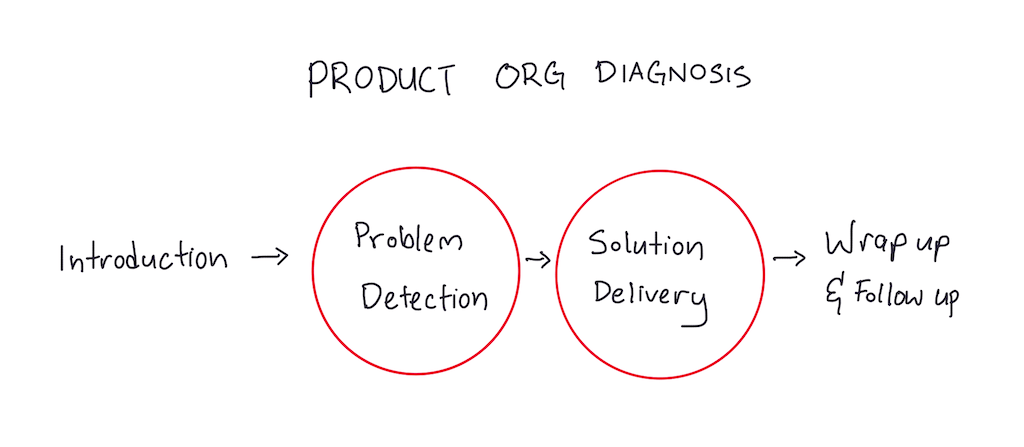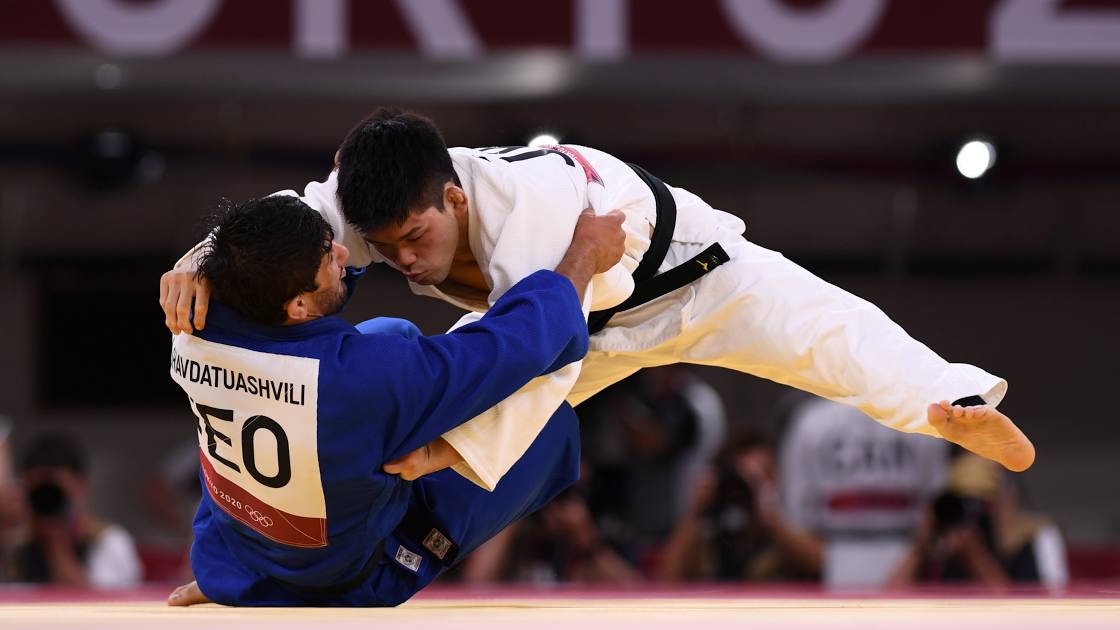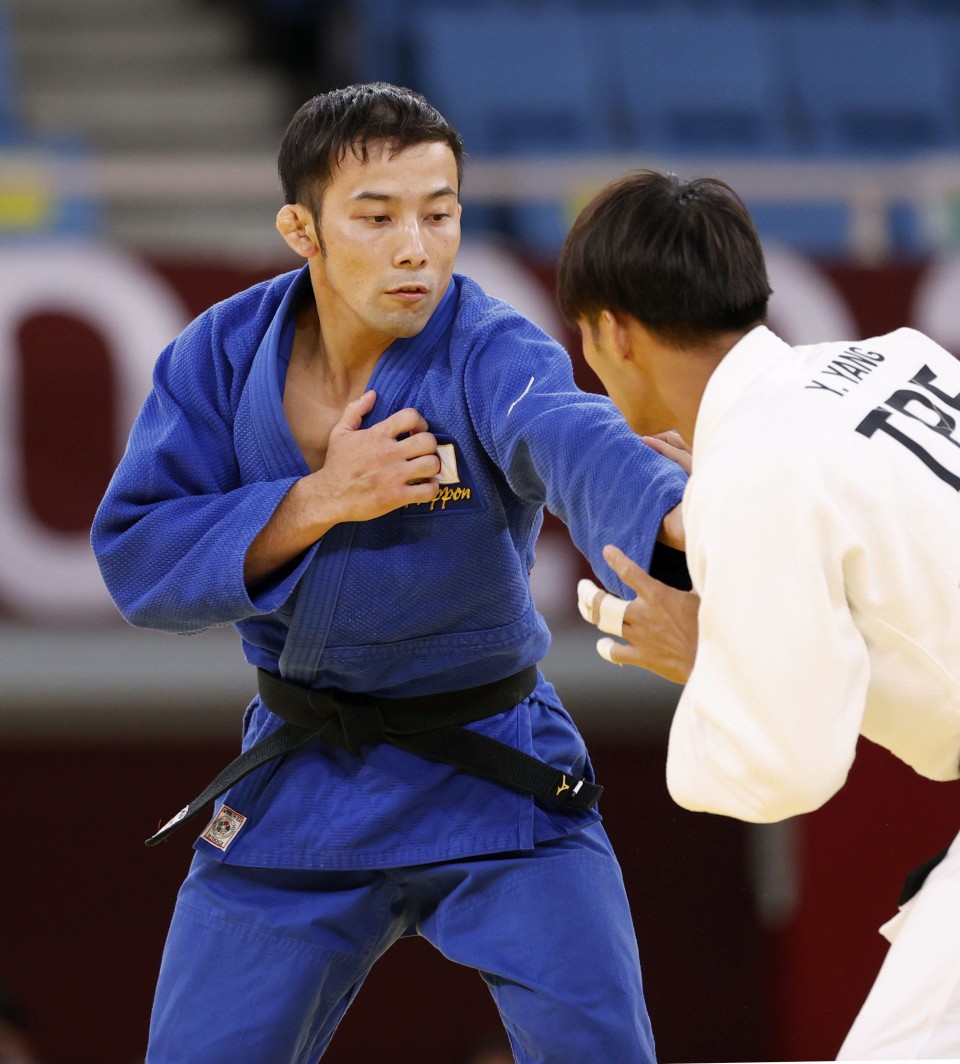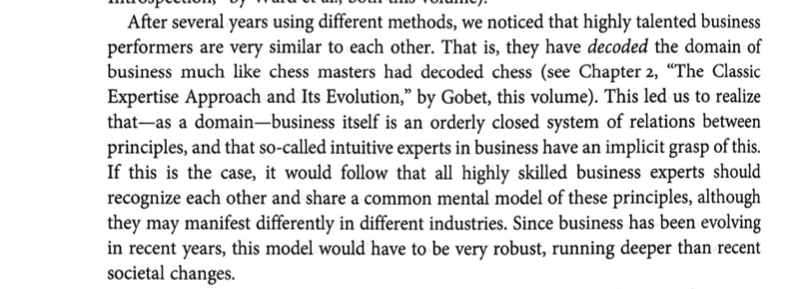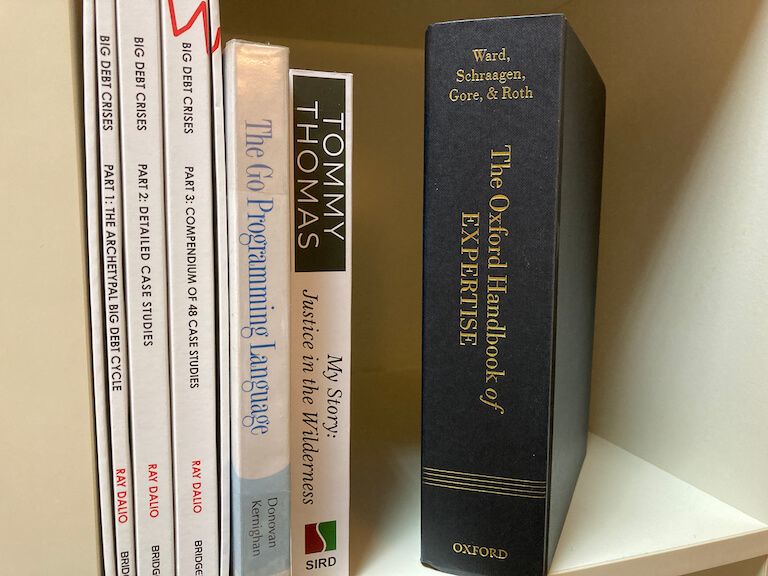
1/ Let's talk a little about how people learn in the real world.
No, I'm not going to talk about classroom instruction, or pedagogical development, or enrolling in a cohort based course. None of that.
Just a simple question: how do people ACTUALLY learn from doing?
No, I'm not going to talk about classroom instruction, or pedagogical development, or enrolling in a cohort based course. None of that.
Just a simple question: how do people ACTUALLY learn from doing?
2/ The study of learning in real world environments is known as macrocognition.
Fancy name, simple meaning: it just means that these theories aren't constructed by observation of humans in a lab, but are instead formed from real world observation. en.wikipedia.org/wiki/Macrocogn…
Fancy name, simple meaning: it just means that these theories aren't constructed by observation of humans in a lab, but are instead formed from real world observation. en.wikipedia.org/wiki/Macrocogn…

3/ The questions these researchers had went something like this: how is it that some people become experts through trial and error, and others do not or cannot?
Sure, it's great if you can take a course, or a coach. You will likely learn faster. But what if you can't?
Sure, it's great if you can take a course, or a coach. You will likely learn faster. But what if you can't?
4/ It turns out there's a theory about this. It's called Cognitive Transformation Theory, or CTT.
It tells us how people build expertise in the real world.
Think: less pianists and chess and more business and leadership and investing.
It tells us how people build expertise in the real world.
Think: less pianists and chess and more business and leadership and investing.
5/ The theory's central claim is that we learn by replacing flawed mental models with better ones. The key word is REPLACE.
Here's the catch: the more advanced our mental models, the easier it is for us to ignore anomalous data, or to explain them away. This blocks progress.
Here's the catch: the more advanced our mental models, the easier it is for us to ignore anomalous data, or to explain them away. This blocks progress.
6/ What do I mean by this? Well, let's say you're trying to get better in the real world. This means trial and error.
If the learning environment is kind, you can improve quickly. You build mental models that help you achieve your goals. You become good at what you do.
Yay!
If the learning environment is kind, you can improve quickly. You build mental models that help you achieve your goals. You become good at what you do.
Yay!
7/ But most of the time, the learning environment is messy. Learning is hard.
This should be obvious: you don't know what cues to look for in your experiences because you don't have good models. But you can't build good mental models because you don't notice the right cues!
This should be obvious: you don't know what cues to look for in your experiences because you don't have good models. But you can't build good mental models because you don't notice the right cues!
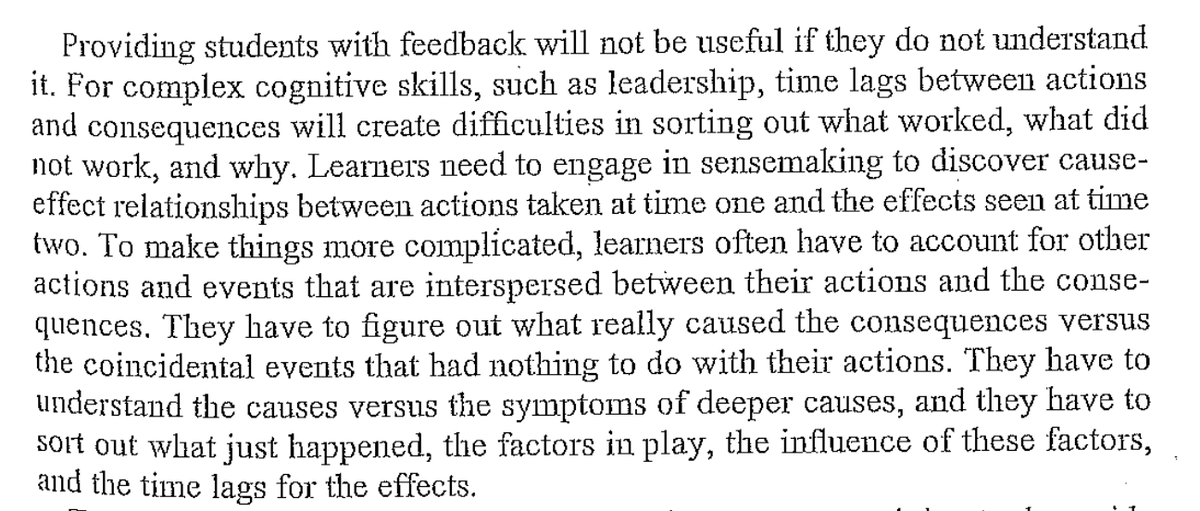
8/ Worse, having an instructor point out these cues to you might make you worse in the long term. You need to learn to learn from experience.
Learning better from experience means 2 things: 1) getting good at introspection ('sensemaking') and 2) DESTROYING old mental models.
Learning better from experience means 2 things: 1) getting good at introspection ('sensemaking') and 2) DESTROYING old mental models.

9/ So here we get at the heart of the theory.
CTT tells us that we learn only when we destroy old mental models. We DON'T learn when we are refining an existing model.
It also tells us that it gets harder to unlearn when our mental models become more sophisticated.
Read:
CTT tells us that we learn only when we destroy old mental models. We DON'T learn when we are refining an existing model.
It also tells us that it gets harder to unlearn when our mental models become more sophisticated.
Read:
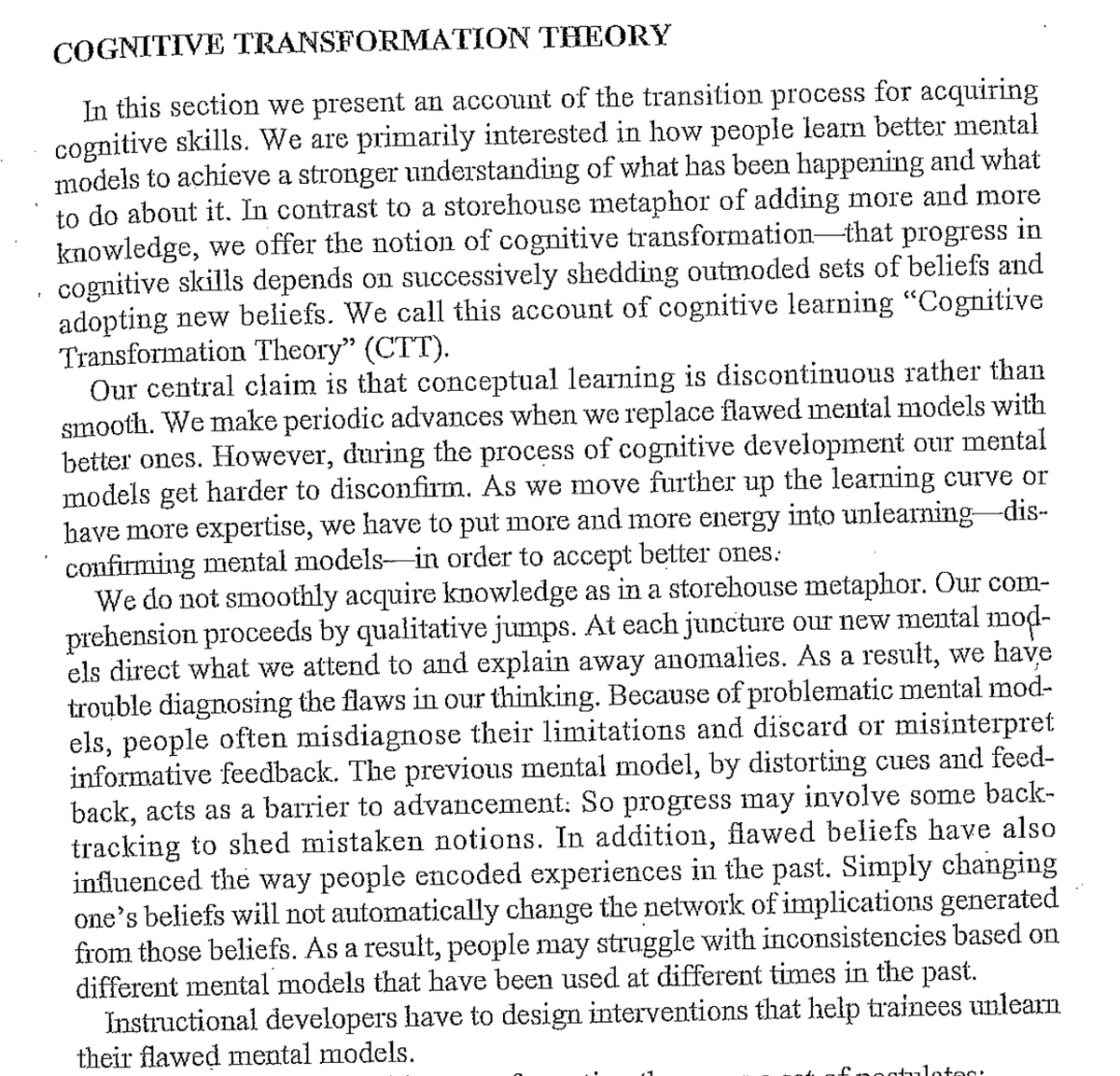
10/ This explains a bunch of things. It tells us why expertise building with trial and error is discontinuous. You hit plateaus, and then you make jumps. 
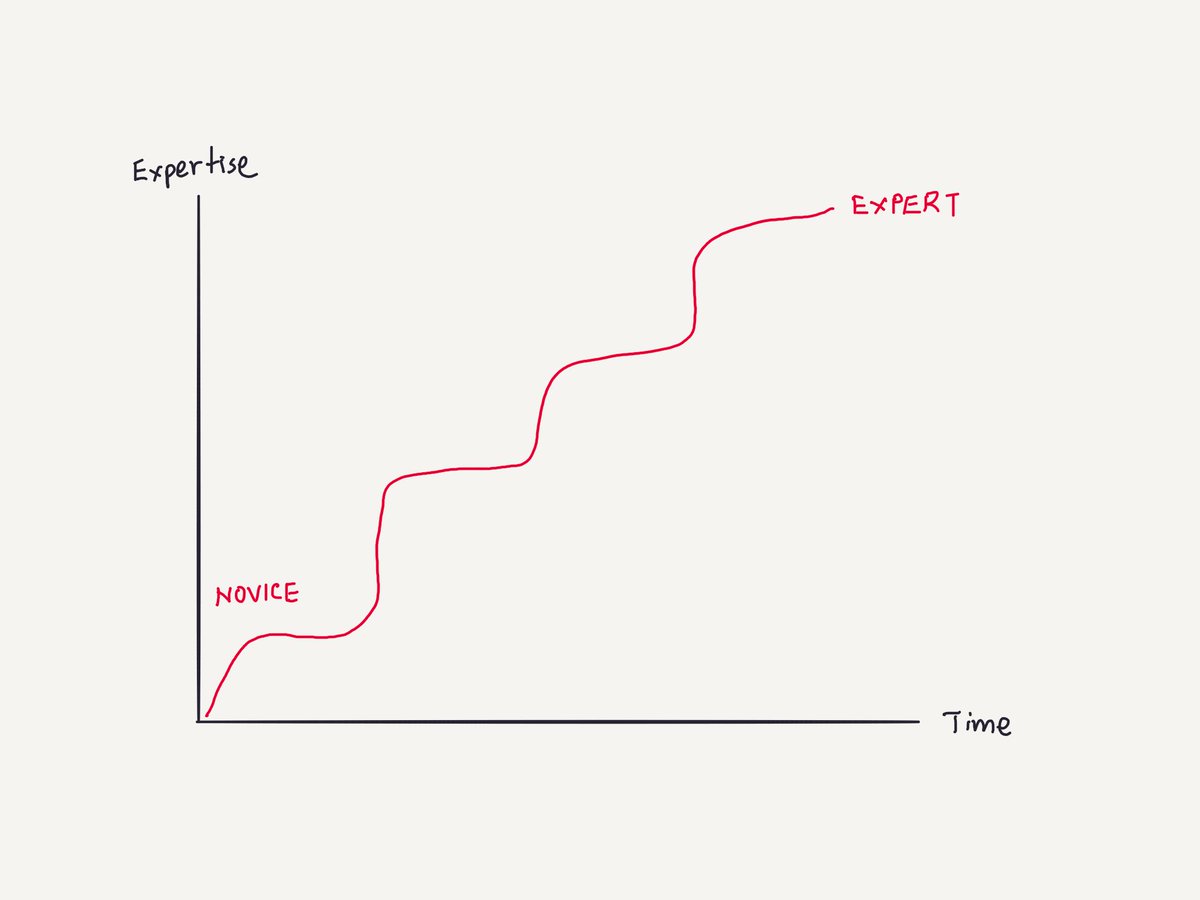
11/ It also explains the importance of having loose feedback loops. One of the best blog posts on this idea is @brianluidog's Beware of Tight Feedback Loops: brianlui.dog/2020/05/10/bew…
Lui talks about how having loose feedback loops are important for investing and life.
Lui talks about how having loose feedback loops are important for investing and life.
12/ With CTT, this makes more sense. CTT tells us you need to destroy old mental models to progress. i.e. you should hold on to old mental models loosely.
It ALSO implies that those who cannot hold their mental models loosely will plateau at an intermediate skill level forever.
It ALSO implies that those who cannot hold their mental models loosely will plateau at an intermediate skill level forever.
13/ This sort of gets at the heart of business expertise. In the late 2000s, @LiaDiBello4 argued that cognitive agility (the ability for one to update one's mental models in the face of new information) is a better predictor of business ability compared to problem solving ability 
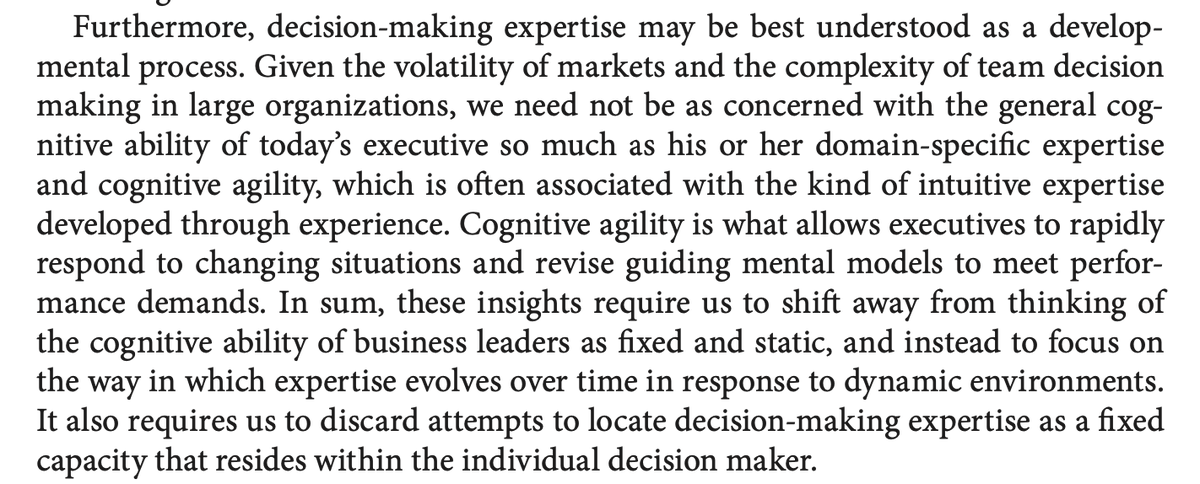
14/ In business, as in life, what matters is how quickly you can leave old mental models behind. Not necessarily how smart you are or how high your IQ is.
Why? Because learning in business is from trial and error.
And CTT tells us how to learn better from trial and error.
Why? Because learning in business is from trial and error.
And CTT tells us how to learn better from trial and error.
15/ If you want to read the full paper, go here: researchgate.net/publication/25…
Or take a look at this thread, which talks about CTT in the context of accelerating expertise:
Or take a look at this thread, which talks about CTT in the context of accelerating expertise:
https://twitter.com/ejames_c/status/1422123042432380928?s=20
16/ Follow for more threads on learning in real world, messy environments. Tomorrow, I'll talk about the six ways people ignore anomalous data, in order to hold on to their mental models.
Or read this for a concrete example of a flawed mental model: commoncog.com/blog/cash-flow…
Or read this for a concrete example of a flawed mental model: commoncog.com/blog/cash-flow…
Also, this is probably related, in case you haven't seen it:
https://twitter.com/ejames_c/status/1417689411374915584
• • •
Missing some Tweet in this thread? You can try to
force a refresh


